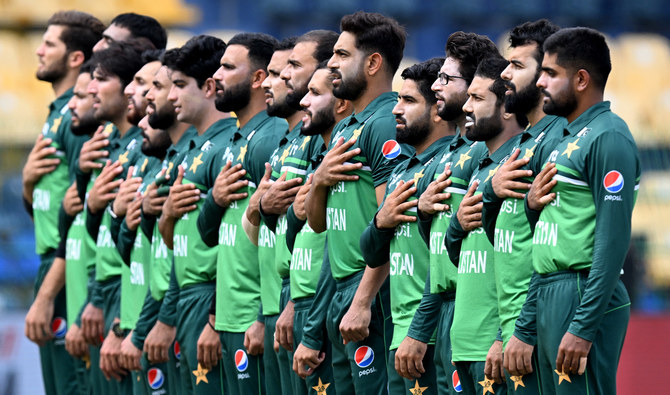ISLAMABAD: Pakistan’s top spot in the international ODI rankings will be up for grabs ahead of the 50-over Men’s World Cup in October-November, the ICC said on Monday, with Australia and India closing in on the number one ranking before the megaevent kicks off.
According to the latest updated ICC ODI team rankings released on Sunday, Pakistan retained their top spot despite losing to India and Sri Lanka in the Super Four stages of the Asia Cup 2023 tournament. Babar Azam’s side have 3,102 points from 27 matches and a rating of 115. India, with 4,701 points are close behind with a rating of 115 but from 41 matches. Australia, with 3,166 points from 28 matches have a rating of 113 and sit at the number three spot.
India and Australia squandered their chances of clinching the top spot from Pakistan, the former after losing to Bangladesh in the Asia Cup Super Four stage and the latter by losing three back-to-back matches to South Africa.
“Pakistan hold onto the No.1 spot at the end of Asia Cup 2023 despite their early exit and India’s thumping win over Sri Lanka in the final,” the ICC said in a report. “Australia too squandered their chance to go on top of the rankings after the series loss to South Africa.”
The only way Australia can head the ODI rankings before the World Cup begins is by whitewashing India when the two sides play a three-match ODI series from Sept. 22-27. If Australia start the series with two wins, they will go on top of the rankings until the final ODI at least.
India, on the other hand, are in prime position to steal the number one ODI spot from Pakistan by winning the first ODI against Australia at home, which takes place on Sept.22.
“Rohit Sharma’s side are coming off a spectacular Asia Cup win and they could reach the No.1 position as early as Friday next week by defeating Australia in the first ODI in Mohali,” the ICC added.
If India avoid a whitewash but still lose the series to Australia, Pakistan will remain the top-ranked side for the World Cup. Conversely, a 3-0 loss to Australia will see India slip to third position and Australia go on top.
For Pakistan to keep their number one spot ahead of the World Cup is a difficult ask, especially when Azam’s side have no official ODIs scheduled ahead of the megaevent.
“They [Pakistan] could still regain the top ranking if Australia and India continue to lose, but the fact these two teams are scheduled to play each other at the end of the month means one of them would then re-claim the premier position,” the ICC added.
















